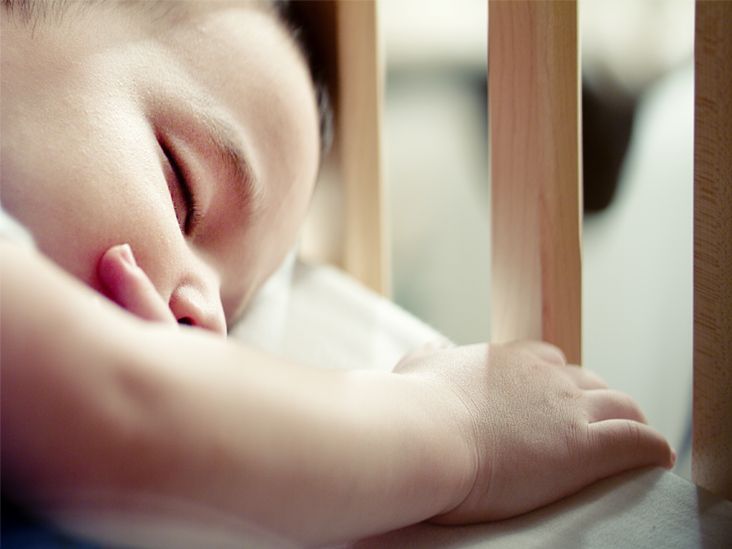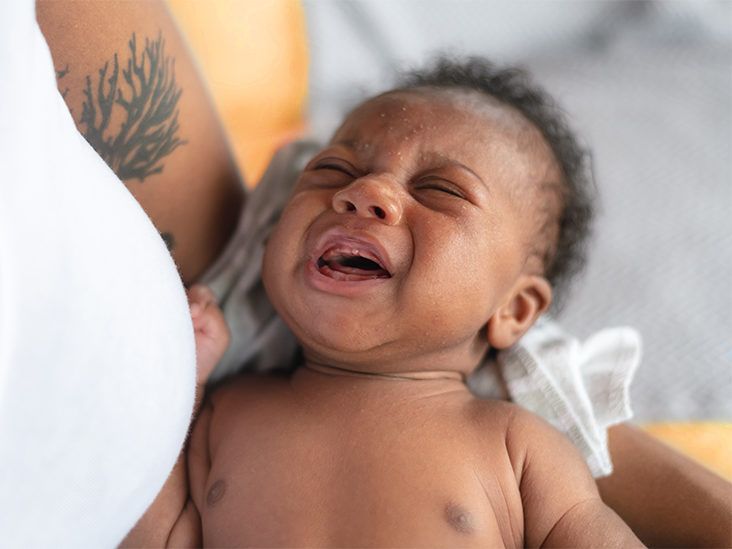When you see your baby rubbing their eyes, your immediate thought is probably, “My kid needs a nap!” And you may be right. There’s literally nothing else more universally accepted as a sign for world-weary fatigue than the ol’ yawn, stretch, eye-rub routine — and for good reason.
On the other hand, very young infants may just be exercising those newborn reflexes — it’s natural for them to bring their hands to their face.
But what if your baby isn’t actually tired or acting reflexively during periods of fussiness? Could it be their vision or an infection? Most likely not, though it could happen. Here are all the possible explanations for why your little one is rubbing their eyes — and how to help.
Babies are human, and humans rub their eyes in response to all kinds of environmental allergens and emotional cues. It’s not unusual to see a baby rubbing their eyes, so don’t panic. But it can mean they’re in some kind of discomfort or distress.
They’re tired
All that looking around at the world takes a toll on your baby’s eyes and brain. When they feel mentally and physically tuckered out, babies may start throwing hints that it’s time for a nap by rubbing their eyes.
Try putting your baby down for a nap as soon as you see the eye-rubbing signal. If they go off to sleep, great — you’ve noticed an “I’m sleepy” cue to look for before they end up crying.
Their eyes hurt or itch
Babies’ eyes are exposed to the same kinds of environmental allergens that ours are, except theirs are even more delicate. In dry air, in dusty rooms, at the beach or park, with Grandma’s cat, during pollen season… these are all prime times for little eyes to get irritated.
That being said, eye allergies are uncommon in babies. But the irritation can cause signs like redness, watering, fussiness, and eye rubbing.
They have an eye infection
Viral or bacterial conjunctivitis (aka the dreaded pink eye) usually comes with obvious symptoms like redness, crustiness, and oozing — but not always. Itching can occasionally be an early symptom before all the other nastiness shows up.
If you know your baby was exposed to pink eye or they’ve been sick with another virus recently (many childhood colds can cause pink eye), you might want to keep conjunctivitis in mind. And yeah, wash your hands just in case.
They’ve been straining their eyes
When you overexert yourself at the gym, it’s a natural instinct to rub your sore muscles to soothe the ache.
The exact same principle might apply to rubbing eyes: When eyes are overextended for some reason — like when they’re straining to see clearly because of a visual impairment — they’ll get tired and achy more often, making us want to rub them.
Vision problems aren’t common in newborns, but by 6 months, some babies are showing signs of impairments like refractive errors and cataracts.
The American Academy of Ophthalmology and the American Academy of Pediatrics recommend eye exams be done by a baby’s pediatrician at each well visit, starting at birth.
They’re teething
This one is a little less likely, but could still be the culprit if your baby is in the peak of a teething phase. Upper teeth, especially, could cause soreness and pain high enough on the face to make babies rub at their eyes in an attempt to soothe the ache away.
Eye rubbing when tired is perfectly normal and not likely to cause harm, unless your baby gets something in their eyes in the process.
The primary risk comes with not figuring out what is causing an irritated eye if there are additional symptoms, like redness and fussiness.
You know what makes a baby really, really want to do something? Knowing you don’t want them to do that thing at all.
In other words, drawing attention to innocuous habits can sometimes make them worse or make the habit last longer; ignore a bad habit and it will typically run its course quickly.
That said, a baby who is constantly rubbing their eyes might be at a higher risk of infection and may need your attention in some way. Here’s what to do, based on why your baby is probably doing it in the first place:
- Tiredness. Put your baby down for a nap! (Seriously, though… babies need 12 to 16 hours of sleep every 24 hours, and that includes naps, so make sure you’re giving them enough chances to doze.)
- Itchy or irritated eyes. If you think something has gotten stuck in your baby’s eye, you can try gently clearing it out with a washcloth soaked in warm water. If that doesn’t work, or if you think the irritation is caused by allergies instead, give your pediatrician a call for next steps. In the meantime, try to distract your baby with toys and other objects to hold to keep their hands busy and away from their face.
- Infection. If you have reason to suspect an eye infection, call your child’s doctor. Keep the affected eye(s) clear with clean, warm water. You may also want to cover your baby’s hands with those little newborn mittens, which look totally useless but actually do work to keep your baby from accidentally scratching themselves (also trim their nails, if you haven’t already!). If your doctor prescribes antibiotic eye drops, follow the instructions on your prescription.
- Eye strain or vision problems. Start with your baby’s pediatrician — if there’s a true vision impairment, they can refer you to a pediatric eye doctor for a full exam.
- Teething. Put teething toys in the refrigerator, buy two (or 10) Sophie the Giraffes to keep on hand, and stock up on infant Tylenol if your pediatrician gives the OK. Rinse and repeat until baby has all their teeth.
If you think your baby is rubbing their eyes for reasons other than sleepiness or teething pain, schedule a checkup with your pediatrician to see what’s up. Any signs of pediatric vision problems, too, should warrant a visit, especially after 6 months of age.
Most of the reasons why your baby could be rubbing their eyes are pretty harmless, but there could be some kind of physical discomfort going on — even if it’s just a need to be cuddled away to dreamland.
Help your little one out by investigating the possible causes, experimenting with some solutions, and seeing your child’s pediatrician — if needed — to troubleshoot some more.







